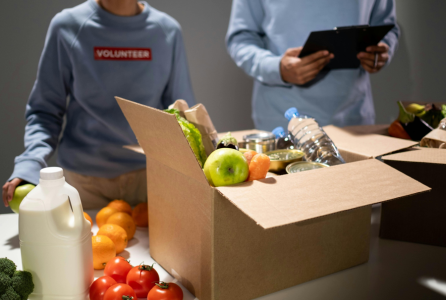New SNAP eligibility changes take effect—here’s what it could mean for your benefits
- Replies 0
If you or someone you care about depends on SNAP, the changes that took hold this month could reshape how families put food on the table.
The updates come from the One Big, Beautiful Bill Act of 2025, and for many older adults, veterans, and parents, the rules are tougher than ever.
For the first time, age and family categories that were previously safe from strict oversight now face work requirements and tighter limits.
These adjustments are raising new concerns for households that already struggle to stretch every dollar.
The heart of the overhaul is tougher work requirements for “able-bodied adults without dependents” (or ABAWDs, in government-speak).
If you’re under 55 and don’t have children, you now have to prove you’re working, studying, training, or volunteering at least 20 hours a week (that’s 80 hours a month) to keep your SNAP benefits. Miss that mark, and you’re limited to just three months of benefits in any three-year period.
But the net is wider than ever before. For the first time, these work requirements now apply to:

Not everyone has to jump through these new hoops. You’re exempt if you:
Also read: New proposal aims to wipe out taxes on Social Security benefits
If you’re in your late 50s or early 60s, these changes could be a rude awakening. For decades, older adults were largely shielded from work requirements.
Now, unless you qualify for an exemption, you’ll need to document your work, training, or volunteer hours every month—or risk losing your benefits after just three months.
And it’s not just individuals who are affected. Parents with kids over 7 now face the same requirements as single adults. Immigrants, especially those with refugee status, are also seeing new restrictions.
Also read: Worried about your SSI or veterans’ benefits? Here’s what the delayed payments mean for you—and what’s changing next
The new law is part of a massive cost-cutting effort. The Congressional Budget Office estimates it will slash $186 billion from SNAP by 2034.
For the first time, states will also have to help pay for benefits and administrative costs, which could mean even more changes down the road as states look for ways to manage their new financial burden.
For now, benefit levels are locked in through September 30, 2025. Here’s what households in the continental US and DC can expect each month:

Are you worried about losing your SNAP benefits? Have you already been asked to prove your work hours, or are you struggling to meet the new requirements? Do you have tips for others facing the same challenges?
The updates come from the One Big, Beautiful Bill Act of 2025, and for many older adults, veterans, and parents, the rules are tougher than ever.
For the first time, age and family categories that were previously safe from strict oversight now face work requirements and tighter limits.
These adjustments are raising new concerns for households that already struggle to stretch every dollar.
The heart of the overhaul is tougher work requirements for “able-bodied adults without dependents” (or ABAWDs, in government-speak).
If you’re under 55 and don’t have children, you now have to prove you’re working, studying, training, or volunteering at least 20 hours a week (that’s 80 hours a month) to keep your SNAP benefits. Miss that mark, and you’re limited to just three months of benefits in any three-year period.
But the net is wider than ever before. For the first time, these work requirements now apply to:
- Veterans
- Adults aged 55 to 64
- Parents with children over age 7 (the old cutoff was 18)
- Certain immigrants, including some refugees

The rules now also cover veterans, adults aged 55–64, parents with children over 7, and some immigrants, including certain refugees. Image source: Cottonbro Studio / Pexels
Not everyone has to jump through these new hoops. You’re exempt if you:
- Earn more than $217.50 per week before taxes (that’s 30 hours at the federal minimum wage)
- Are pregnant
- Have a certified disability
- Care for a child under 6 or a disabled family member
- Are in an alcohol or drug treatment program
- Are homeless
- Are a part-time student under certain conditions
- Are a young adult (under 24) who was in foster care
Also read: New proposal aims to wipe out taxes on Social Security benefits
If you’re in your late 50s or early 60s, these changes could be a rude awakening. For decades, older adults were largely shielded from work requirements.
Now, unless you qualify for an exemption, you’ll need to document your work, training, or volunteer hours every month—or risk losing your benefits after just three months.
And it’s not just individuals who are affected. Parents with kids over 7 now face the same requirements as single adults. Immigrants, especially those with refugee status, are also seeing new restrictions.
Also read: Worried about your SSI or veterans’ benefits? Here’s what the delayed payments mean for you—and what’s changing next
The new law is part of a massive cost-cutting effort. The Congressional Budget Office estimates it will slash $186 billion from SNAP by 2034.
For the first time, states will also have to help pay for benefits and administrative costs, which could mean even more changes down the road as states look for ways to manage their new financial burden.
For now, benefit levels are locked in through September 30, 2025. Here’s what households in the continental US and DC can expect each month:
- 1 person: $292
- 2 people: $536
- 3 people: $768
- 4 people: $975
- 5 people: $1,158
- 6 people: $1,390
- 7 people: $1,536
- 8 people: $1,756
Key Takeaways
- New SNAP (food stamp) eligibility rules in the US now require able-bodied adults without dependents—including veterans and people aged 55–64—to work, study, train, or volunteer at least 20 hours a week, or risk losing benefits after three months in a three-year period.
- Parents with children over seven years old will also have to meet the work requirements, as the dependent age threshold was lowered from 18 to seven.
- Certain groups remain exempt, including pregnant women, those with certified disabilities, carers for children under six, some immigrants, and people earning over $217.50 a week; additional exemptions apply to participants in substance treatment programs, homeless individuals, and former foster youth under 24.
- The changes are forecast to cut $186 billion from SNAP by 2034, and for the first time, states will need to bear part of the cost of both benefits and administrative expenses.






